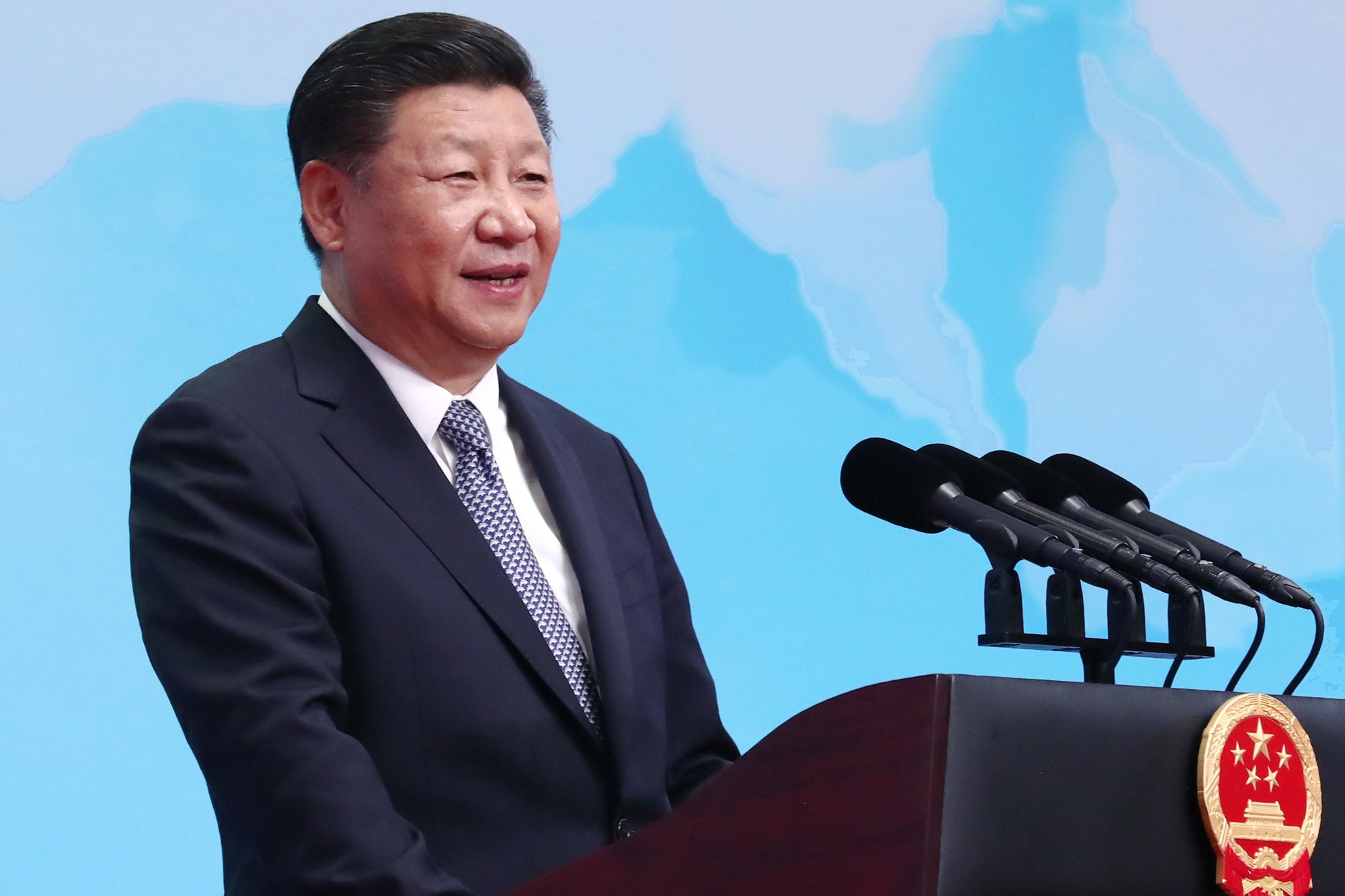
Reuters reports that the BRICS group of emerging economies must promote trade liberalization and an open world economy, Chinese President Xi Jinping said at a business meeting on Sunday at the start of a three-day summit being held in southeastern China. The heads of state from Brazil, Russia, India, China and South Africa will gather in the city of Xiamen through Tuesday, giving China as host its latest chance to position itself as a bulwark of globalization in the face of U.S. President Donald Trump's "America First" agenda. BRICS leaders will be joined by observer countries Thailand, Mexico, Egypt, Guinea and Tajikistan, and officials will discuss a "BRICS Plus" plan to possibly expand the bloc to new members... "We should push for an open world economy, promote trade liberalization and facilitation, jointly create a new global value chain, and realize a global economic rebalancing," Xi told BRICS business leaders and senior officials. Xi said he still had "full confidence" in BRICS countries' development despite claims that the bloc's relevance had faded due to slower growth. "The development of emerging market and developing countries won't touch anyone's cheese, but instead will diligently grow the world economic pie," he said. Earlier, Chinese vice trade minister, Wang Shouwen, said the BRICS meeting was expected to "reach consensus for actions" to oppose trade protectionism. He added that China was interested in possibly establishing a free trade agreement with Mexico.
Reuters reports that North Korea's latest nuclear test is likely to pile more pressure on China to take tough action against its neighbor, but Beijing already doubts economic sanctions will work and says it is not its sole responsibility to rein in Pyongyang. China has lambasted the West and its allies over recent weeks for promoting the "China responsibility theory" for North Korea, and been upset by Seoul and Washington's own military drills that Beijing says have done nothing to cool tensions. "The United States has to play its own role and should not be blindly putting pressure on China to try and squeeze North Korea," said Ruan Zongze, a former Chinese diplomat now with the China Institute of International Studies, a think-tank affiliated with the Foreign Ministry. While the seriousness of Sunday's nuclear test means China will likely support tough new action, including possibly cutting off oil supplies, China will make clear others need to step up too, Ruan added. Over the past week, China's foreign ministry has repeatedly hit back at calls from Western countries and Japan for China for to do more to rein in North Korea, saying that pushing for dialogue was an equally integral part of the U.N. resolutions, and that escalating sanctions alone had been evidently ineffective.
- 2017-09-01 As China’s big leadership revamp nears, Xi Jinping is carrying out a military reshuffle
- 2017-08-31 China-US Trade Wars and the IP Elephant in the Room
- 2017-08-30 Trump wants China to fix North Korea, but it isn't going to happen
- 2017-08-29 The North Korean Threat Beyond ICBMs
- 2017-08-28 India, China agree to pull back troops to resolve tense border dispute
- 2017-08-27 Chicago Exchange Sale Looks Shaky as China Tensions Rise
- 2017-08-25 China’s Big Businesses Risk Trump’s Punishment Over North Korea
- 2017-08-24 China to use ‘all means necessary’ to defend itself against Trump ‘protectionism’
- 2017-08-23 China demands U.S. immediately withdraw N. Korea sanctions, warns will hit ties
- 2017-08-22 US targets Chinese, Russian entities funding North Korea's nukes
- reuters South Korea conducts missile drill after North Korea nuclear test rattles globe
- reuters South Korea to announce approval of environment report for THAAD deployment on Monday: official
- New York Times North Korea Nuclear Test Puts Pressure on China and Undercuts Xi
- Wall Street Journal North Korean Hydrogen-Bomb Explosion Tests Ties With China
- Reuters China's Global Times tabloid warns against cutting off N.Korea oil supply
- Reuters Xi, Putin agree to 'appropriately deal' with N.Korea nuclear test: Xinhua
- uk.reuters.com North Korean bomb prompts global condemnation, calls for talks
- Financial Times Oriental DreamWorks at centre of US-China split over strategy
- Wall Street Journal Indigestion in China's Economy Spells Trouble for Coal
- Financial Times China's migrant workers feel pinch as Beijing pulls back on wages
- New York Times BRICS Summit Expected to Oppose Trade Protectionism, China Says
- Bloomberg Trump's Threats Over North Korea Belie Limits on His Options
- The Washington Post Fire, fury — and confusion
- The Telegraph China must act decisively on emboldened North Korea - and soon
- The Diplomat No Red Lines? China and North Korea
- Financial Times Kim dares to make China lose face
